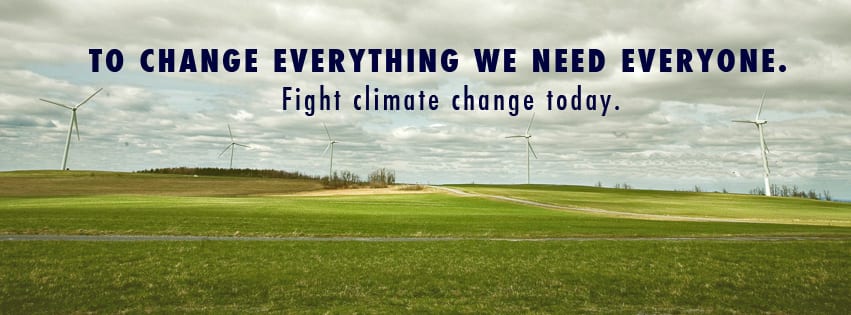By Janette Rosenbaum, 350 Madison

Environmental activists are often criticized for driving, flying, being on the grid, or otherwise engaging in less than saintly behavior, environmentally speaking. Our failure to live a zero-carbon lifestyle is used as evidence that we’re not seriously committed to ending the use of fossil fuels.
In reality, activists are just as frustrated as critics by the size of our carbon footprints. Like everyone else, we live in a world dominated by fossil fuel–powered transportation, fossil fuel–powered heating and cooling, and fossil fuel–powered consumption. We live in a world with a shortage of better choices.
This is exactly the problem that activists are tackling when we march, lobby, and sit down in front of oil trains. We’re not calling for the instantaneous elimination of fossil fuels from our economy, full stop. What we are demanding is the speedy replacement of fossil fuels with better choices, like renewable energy, energy efficiency, and a simpler way of life that doesn’t relentlessly push consumption for its own sake. We want all people to be free to choose a more environmentally friendly way of life.
If people already had good alternatives to fossil fuels, environmental activism would look very different. Activists would be out encouraging individuals to choose a lower-carbon life, instead of demanding that governments and corporations provide better solutions to our energy needs. And we certainly would be choosing very low-carbon lives ourselves.
It’s understandable that not many people are willing to take the radical step of dropping out of the fossil fuel economy and living in a small, unheated cabin with only a bicycle for transportation. But within the current set of choices, we can take smaller steps to reduce our dependence on fossil fuels.
For example, instead of giving up our cars entirely, we can choose to drive less. That’s not to say that driving less is easy for everyone—the number one reason for driving is commuting to work, and many of us don’t have the choice to quit our jobs, to work from home, or to live within walking distance of our workplace. Many of us don’t even have access to effective public transportation.
But what if we could be environmental activists without commuting to environmental activism meetings? Yes, when it’s time to sit down in front of an oil train, we need to show up in person. But for planning a protest, email and video conferencing are very effective, and have a much lower carbon footprint than driving to meet with other activists.
Writing outreach materials . . . sending a letter to the editor . . . calling landowners to ask them to attend a zoning committee meeting . . . managing a database of activists . . . donating to an environmental nonprofit or a pro-environment politician — all of these can be done from home. People who appreciate the work of activists, but who think they live too far from an organized group to become activists themselves, can contribute tremendously without traveling anywhere.
Environmental activism happens everywhere. Hubs tend to form in cities, and those groups typically work on issues that they can effectively get involved in from where they are. But it’s crucial for these hub groups to collaborate, to coordinate their local efforts in order to tackle regional and global problems. In fitting these pieces together, the support and involvement of the people living between the hubs is invaluable.
If you don’t live in Madison — if you don’t even live in Wisconsin — you can still be an activist. Contact your nearest hub group — maybe that’s 350 Madison! — to find out how you can get involved. Contact a group working on an issue that you have special knowledge about or interest in. Or focus on reducing your own footprint within the choices that are available, and encourage your friends and neighbors to do the same. Wherever we live, wherever we are in our own carbon journeys, we can all get involved in moving towards better choices for everyone.
